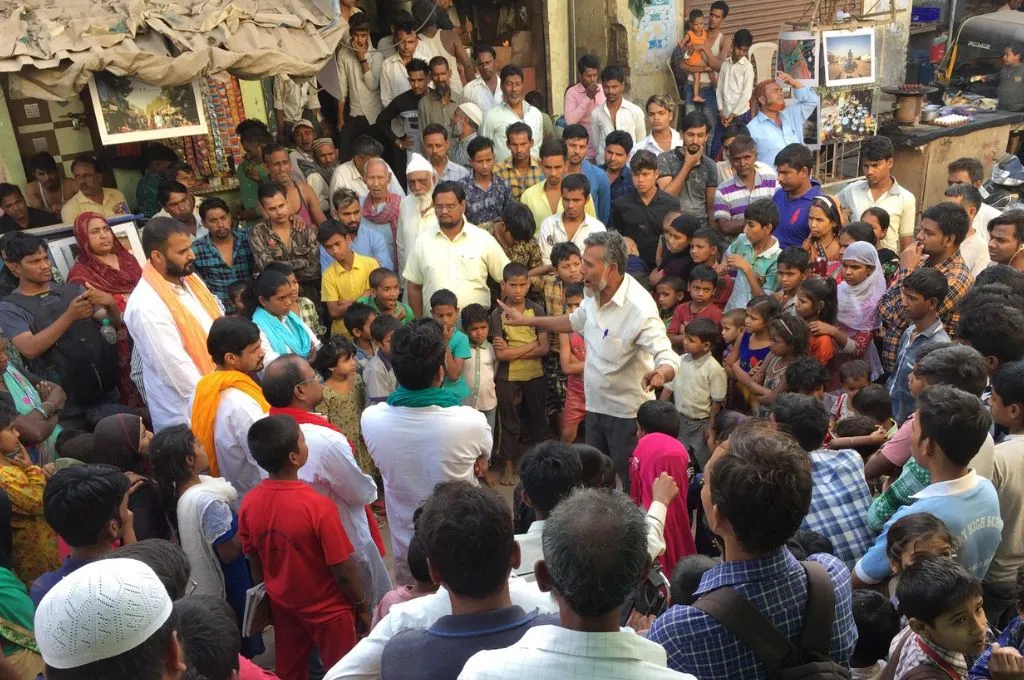In a landmark judgment delivered on 8th August, 2018, the Delhi high court struck down as unconstitutional various sections of the colonial Bombay Prevention of Begging Act, 1959 (Act, as extended to the NCT of Delhi). The court’s ruling emanates from a public interest litigation filed by Harsh Mander and Karnika Sawhney several years ago, asking the court to strike down these provisions on grounds that they violate Articles 14-22 of the constitution.
The court has validated the idea that poverty is a human rights issue.
The judgment is landmark because in decriminalising begging, the court has vindicated constitutional conscience and validated the idea that poverty is a human rights issue, and the denial of the right to life, livelihood and dignity to the poor is a patent violation of fundamental rights that cannot and should not be tolerated in a country governed by rule of law.
A sweeping law
The Act defines a “beggar” as anyone “having no visible means of subsistence, and wandering about or remaining in any public place in such condition or manner, as makes it likely that the person doing so exists by soliciting or receiving alms”. “Begging” under the Act includes “soliciting or receiving alms in a public place, whether or not under any pretence of singing, dancing, fortune-telling, performing or offering any article for sale”.
Neither the Indian Penal Code nor the Act explain what is meant by “soliciting alms” or what constitutes a “public place” – leading to ambiguity, inconsistency and abuse in the practical implementation of the law. In particular, the failure to differentiate between forceful and non-forceful forms of begging, coupled with the definitional problems in relation to core concepts, make it difficult to construe the purpose of the law and what it seeks to achieve.
Taking rights seriously
The simple question placed before the court, in the court’s own words, was this: in India’s constitutional framework that promises every person the right to live with dignity, can the state criminalise begging? The court answered this in the negative and noted a lack of distinction between voluntary and involuntary begging cannot stand the test of Article 14 of the constitution, which strikes at arbitrariness.
Related article: Justice for all
“This in our view is manifestly arbitrary,” the court categorically ruled. “In this process, the State would be detaining persons who are not engaged in begging, such persons may be daily wagers and/or having family members to support. As a result of the detention of the bread earner of the family, the entire family may be reduced to financial deprivation and penury. Such can never be the object, spirit and intendment of a welfare state by way of what is touted as a social benefit legislation.”
The court came down heavily on a submission made by the standing counsel for the government of India in his counter affidavit that “begging should not be a crime if it is done because of poverty. However, in order to ascertain whether it is being done out of poverty or willingly by a person even if he/she is well of or has been forced into begging, it is necessary to detain him/her. Only after detention of such person and subsequent investigation, the cause of begging by an individual can be ascertained.”

Delhi high court | Photo courtesy: PTI
The court said that the state cannot be permitted to arrest persons who may be subsequently found to have not been begging, thereby depriving them of their liberty without following any process of law.
In a concise and easy-to-read judgment, the court struck down several provisions of the Act which either treat begging as an offence committed by the beggar, or deal with ancillary issues such as powers of officers to deal with the said offence, the nature of enquiry to be conducted therein, punishments and penalties to be awarded for the offence, the institutions to which such offenders could be committed and procedures following the awarding of sentence for committing the said offence.
Diagnosing the problem of begging
The court’s observations on the reality of begging are worth noting. According to the court, “people beg on the streets not because they wish to, but because they need to. Begging is their last resort to subsistence, they have no other means to survive. The government has the mandate to provide social security for everyone and the presence of beggars is evidence that the state has not managed to provide these to all its citizens.”
[quote]If we want to eradicate begging, artificial means to make beggars invisible will not suffice.[/quote]The court observed that criminalising begging is a wrong approach to deal with the underlying causes of the problem. The court observed: “If we want to eradicate begging, artificial means to make beggars invisible will not suffice. A move to criminalise them will make them invisible without addressing the root causes of the problem. The root cause is poverty, which has many structural reasons: no access to education, social protection, discrimination based on caste and ethnicity, landlessness, physical and mental challenges, and isolation.”
The court said that if the state wishes to criminalise specific types of forced beggary, it has to “first think out a clear factual basis and impact thereof to pass a well thought legislation after due application of mind” and be mindful of constitutional rights.
Changing judicial attitudes
Indian constitutional courts have seldom approached beggary laws from the prism of fundamental rights; on the contrary, courts have, for long, castigated beggars for totally unscrupulous reasons. For instance, courts have called pavement dwellers a “source of public nuisance” (Olga Tellis vs Bombay Municipal Corporation); branded ‘jhuggi’ dwellers as “trespassers on public land” (Lawyers’ Cooperative Group Housing Society vs Union of India); and compared homeless people with “pickpockets” (Almitra Patel vs Union of India) and anarchists (Hem Raj vs Commissioner of Police).
The rationale behind anti-beggary laws has largely been seen as a tool to ensure public safety in public places against unwanted encounters with unhygienic elements, namely, beggars. And this is done under the pretext of implementing the Directive Principles of State Policy, which requires the state to ensure public health and safety, among other things. It is, therefore, no coincidence that the Act only targets individual beggars on the streets but not charitable institutions (who, when acting in groups, can be extremely aggressive and intimidating).
The Act criminalises people for what they are rather than for what they do.
In this situation, the Delhi high court’s judgment reinforces the values of inclusiveness and tolerance in Indian society through its references to the principles of equality, liberty and dignity. It also reiterates the importance of judicial activism and the fact that courts, constituted as the ultimate interpreter of the constitution, have wide powers to promote dignitary values deeply rooted in our libertarian democracy. The Act makes a mockery of the criminal justice system, which is founded on the principle actus reus non facit reum nisi mens sit rea, since it criminalises people for what they are rather than for what they do. This needed to be stopped and the court must be commended for doing so.
This article was originally published on The Wire. You can view it here.





